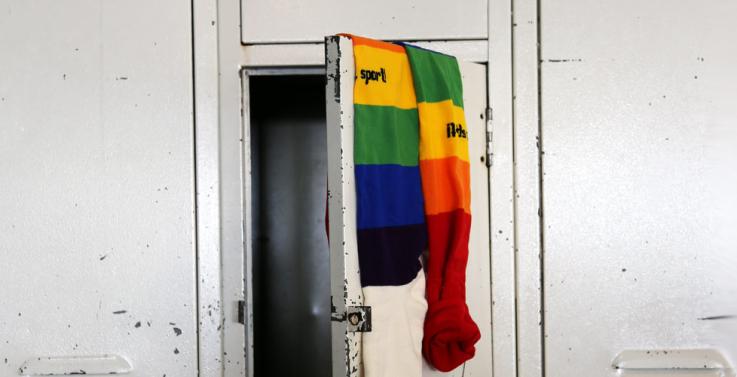
Researchers have identified school sporting environments as major sources of anxiety for same-sex attracted and gender diverse young people.
The research project, led by Victoria University’s Dr Caroline Symons, found more than 80% of young people in physical education (PE) lessons experienced casual homophobic language.
The study was based on a survey of 399 same-sex attracted and gender diverse young people, who reported higher levels of depression and anxiety when they were subjected to regular homophobic taunts.
While the remarks may not have been intended to upset someone in the PE class, the study found more than 80% of people were distressed when they heard remarks like "you’re so gay" and nearly 60% had heard deliberate homophobic remarks targeted at them such as 'faggot' and 'dyke.'
Dr Symons said the 14 to 22 age bracket was critical to build a positive relationship with sport and PE, and PE lessons and school sports were the most common environment for a young person to experience homophobic bullying.
"PE classes and school sport environments were identified as places where verbal abuse, homophobic epithets and bullying were most commonly found," Dr Symons said.
"This homophobia and transphobia tells them 'you are not welcome here,' which can prevent them from enjoying the physical, mental and social benefits of participation for years to come."
beyondblue CEO Georgie Harman said the striking results were troubling, especially at an age and stage when many young people were exploring their identity and sexuality.
"Sport and teamwork can help bind people together. Homophobia in the school yard or on the sports field is unacceptable and can have a lasting impact. Throw away lines - whether intended to hurt or not - stay with kids and can affect their ability to be open about the feelings they're having. Teachers, parents and kids themselves can learn from this research and say `this is not acceptable’, and do something about it,” she said.
Students who identified as gay, lesbian, bisexual, and gender diverse reported moderate levels of depression and moderate to severe levels of anxiety.
Other findings of the survey were:
- A quarter of young people in school PE lessons had experienced physical abuse or pushing.
- Verbal abuse such as threats or name calling were experienced by almost a third in PE.
- One tenth of secondary students had experienced a physical assault such as hitting or using weapons in school sports in past year.
Other researchers in the Equal Play project were Dr Erika Borkoles, Dr Grant O’Sullivan, Professor Remco Polman and Professor Mark Andersen from Victoria University's College of Sport & Exercise Science. They were funded by the Victorian Government through a beyondblue Victorian Centre of Excellence in Depression and Anxiety grant.
Victorian Minister for Mental Health Mary Wooldridge said the Napthine Government provides $3.5 million each year to beyondblue for its role in supporting people who experience mental health issues such as depression or anxiety.
“We know that participation in sport and physical education can be key factor for young people in fighting depression. That is why the Victorian Coalition Government is pleased to support this research which contributes to reducing mental health issues among the gay, lesbian, bisexual, transgender and intersex community,” Ms Wooldridge said.
This project features in the new Research Highlights publication.
Mental health professionals are available 24/7 at the beyondblue Support Service on 1300 22 4636 or via the beyondblue website for email or online chat (3pm till midnight).
